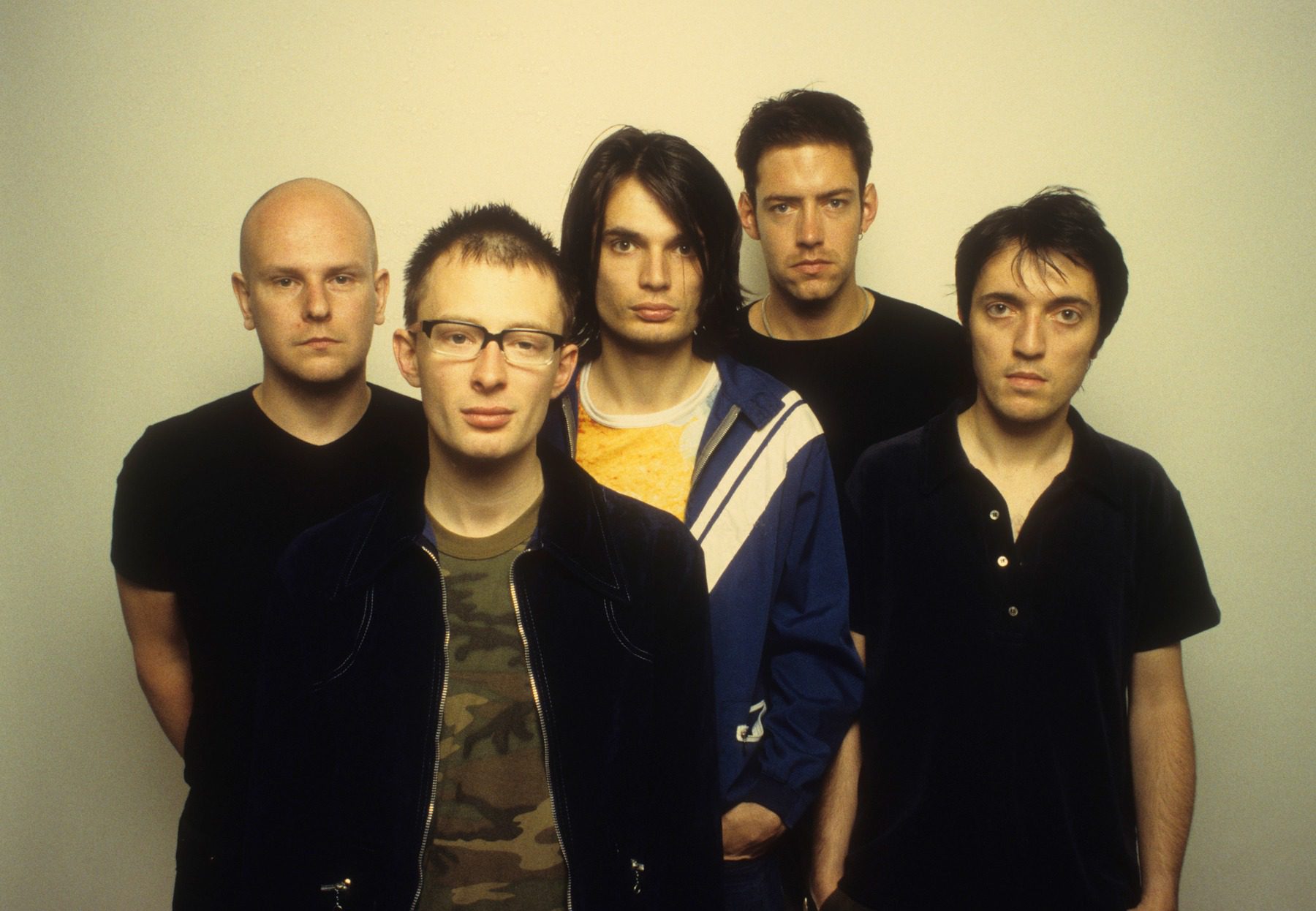
‘You Can Let It Go’: Why Harry Styles’ ‘Matilda’ Is His Heartbreak Masterpiece
Harry Styles knows how to make you feel right at home. Harry’s House, his third and best album, gives a welcoming pop vibe. Harry’s House is a place where he invites you in, sits you down in the kitchen, cooks you pancakes and hash browns, opens a bottle of wine, serves bubblegum and edibles, then whisks you out to the garden to listen to your whole life story.
It’s an idyllic place to spend an hour. But the centerpiece of the album is “Matilda,” a real heartbreaker, an acoustic-guitar ballad about someone learning how to build a new life after a traumatic past. It’s a new peak for Harry—one of the most emotionally powerful songs he’s ever done. He wrote “Matilda” with Amy Allen (who also cowrote “Adore You”) along with his trusty collaborators Tyler Johnson and Kid Harpoon. It comes halfway through the album, surrounded by glam-pop gloss—a deep breath of a song. He listens to Matilda tell this painful story, responding, “You don’t have to be sorry for leaving and growing up.”
blogherads.adq.push(function () {
blogherads
.defineSlot( ‘medrec’, ‘gpt-dsk-tab-article-inbody1-uid0’ )
.setTargeting( ‘pos’, [“mid-article”,”mid”,”in-article1″,”mid-article1″] )
.setSubAdUnitPath(“music//article//inbody1”)
.addSize([[300,250],[620,350],[2,2],[3,3],[2,4],[4,2],[640,250]])
;
});
Last fall, at his HarryWeen dress-up bash, he told the crowd, “I feel fabulous—do you feel fabulous? Good! Now we’re going to sing a sad song.” That could be a mission statement for HH. He spends the album mixing great dance-pop wet dreams with quiet ballads like “Little Freak” and “Boyfriends,” dancing in the zones between the having of sex and the feeling of sad. But like all his records, it repays close listening over time. “Matilda” goes deeper as you live with it for a while. I’ve been a Styles fan for a minute or two, but this is a song beyond any expectations.
Harry’s House explores the idea of home, and how home is something you make up as you go along, building it out of your emotions and memories. It’s a theme he’s always sung about, from “Sweet Creature” (“you bring me home”) to “Canyon Moon” (“I’m going home”) to “As It Was.” But after a pandemic where Fine Line became a soundtrack as well as a therapeutic refuge, it’s about finding and creating new kinds of homes, wherever you are, taking your loved ones every time you go away.
In the deluxe HH box edition, he even has an epigraph from the great Transcendentalist poet Ralph Waldo Emerson. It’s from his 1836 essay “Nature”: “Every spirit builds itself a house; and beyond its house, a world; and beyond its world a heaven. Know then, that the world exists for you…Build, therefore, your own world.”
“Matilda” is the story of somebody trying to build their own world. It begins with a childhood flashback of a kid riding a bike, trying to pretend her pain is “no big deal.” But as it develops, Matilda tells her tale of family trauma, possibly abuse or abandonment. It’s a song about listening to someone else’s pain, respecting it, grieving that you can’t protect them from it. The “home” here is a trap full of nightmares, but the singer has faith that Matilda will move on and create her own home. As he says, “You can let it go / You can throw a party full of everyone you know / And not invite your family.”
In his Zane Lowe interview this week, Harry discreetly discussed the person who inspired the song. “They revealed some stuff to me that was very much like ‘Oh, that’s not normal,’” he said. “It’s easy to mistake it, in this specific case, as ‘regular behavior.’” This person was just beginning to recognize their trauma. Harry told Lowe what he’s trying to say: “I want to support you in some way. But it’s not necessarily my place to make it about me, because it’s not my experience. Sometimes it’s just about listening. I hope that’s what it did. I hope it just says, ‘I was listening to you.’”
blogherads.adq.push(function () {
blogherads
.defineSlot( ‘medrec’, ‘gpt-dsk-tab-article-inbody2-uid1’ )
.setTargeting( ‘pos’, [“mid-article2″,”mid”,”in-article2″,”mid-article”] )
.setSubAdUnitPath(“music//article//inbody2”)
.addSize([[300,250],[300,251],[620,350],[2,4],[4,2],[3,3],[2,2]])
.setLazyLoadMultiplier(2)
;
});
The line that never fails to destroy me is when Harry sings, “You’re just in time / Make your tea and toast.” On one level, it sounds like she’s popping into his kitchen for a visit. But given that she’s just coming to terms with her past, instead of grieving that it took so long, or mourning the years she lost, “you’re just in time” is such a moving affirmation. It’s never too late for her to find her home. She’s right on time. It’s tricky because Harry is simply trying to be a respectful witness to Matilda’s pain, without letting his own shocked or sad reactions get in the way. He doesn’t want to impose himself on her narrative. He just wants to listen. It’s a delicate balancing act of respect and empathy, which is why songs like this are so hard to get right.
When you go back to the rest of HH after “Matilda,” it all hits deeper, even the dance-pop celebrations of love, sex, wine, and food. This album must set some kind of record for breakfast content. (Any artist can plant Easter eggs on their album, but Harry gives actual eggs.) If Fine Line was “soup, sex, and sun salutations,” Harry’s House is sushi, sideboob, and spilled beer.
He’s always been fascinated with gaps in how we communicate—this is a guy who began his solo career singing, “We don’t talk enough / We should open up.” It’s there in “Satellite,” in the Bowie-style distance between lover and loved: “I can see you’re lonely down there/ Don’t you know that I’m right here?” Or the deceptively titled ballad “Little Freak,” where he purrs, “You never saw my birthmark.” “Little Freak” is such a change-up that it sends you into “Matilda” unguarded, which is the only way to experience that song. (Don’t think for a moment this guy doesn’t obsess over the geek details of pacing his albums.)
The album title might evoke Joni Mitchell, but as he told Lowe, it’s inspired by the 1970s Japanese psychedelic rocker Haruomi Hosono, from prog legends Yellow Magic Orchestra. His 1973 solo debut Hosono House, a Styles fave, was recorded in his bedroom. But the music soars on the rock flourishes he adores. There’s a song with guest guitar from an actual bandmate of the Grateful Dead: “Cinema” has John Mayer, whose day job is playing 10-minute Jerry Garcia solos with Dead and Co. The Paul McCartney spirit is everywhere, from the Wings at the Speed of Sound march of “Grape Juice” to how “Keep Driving” evokes the Paul-and-Linda road trip in “Two of Us.”
blogherads.adq.push(function () {
blogherads
.defineSlot( ‘medrec’, ‘gpt-dsk-tab-inbodyX-uid2’ )
.setTargeting( ‘pos’, [“mid”,”mid-articleX”,”in-articleX”,”mid-article”] )
.setSubAdUnitPath(“music//article//inbodyX”)
.addSize([[300,250],[300,251],[3,3],[620,350],[2,2]])
.setLazyLoadMultiplier(2)
;
});
But everybody on this album is looking for home. The brilliance of Harry’s House is what it has to say about your emotional residences, not his. As Ralph Waldo Emerson would say, it’s about “Self Reliance,” but it’s also a challenge to define yourself by what you love, unplugging from social media and other distractions. (Preach, Ralph Waldo: “’Tis of no importance what bats and oxen think.”) That’s why Matilda ends up being the star of the album. She’s building her own world, even if she’s doing it on her own. It’s Harry Styles at his deepest, most soulful, most artistically ambitious. And that’s what makes “Matilda” a triumph.




